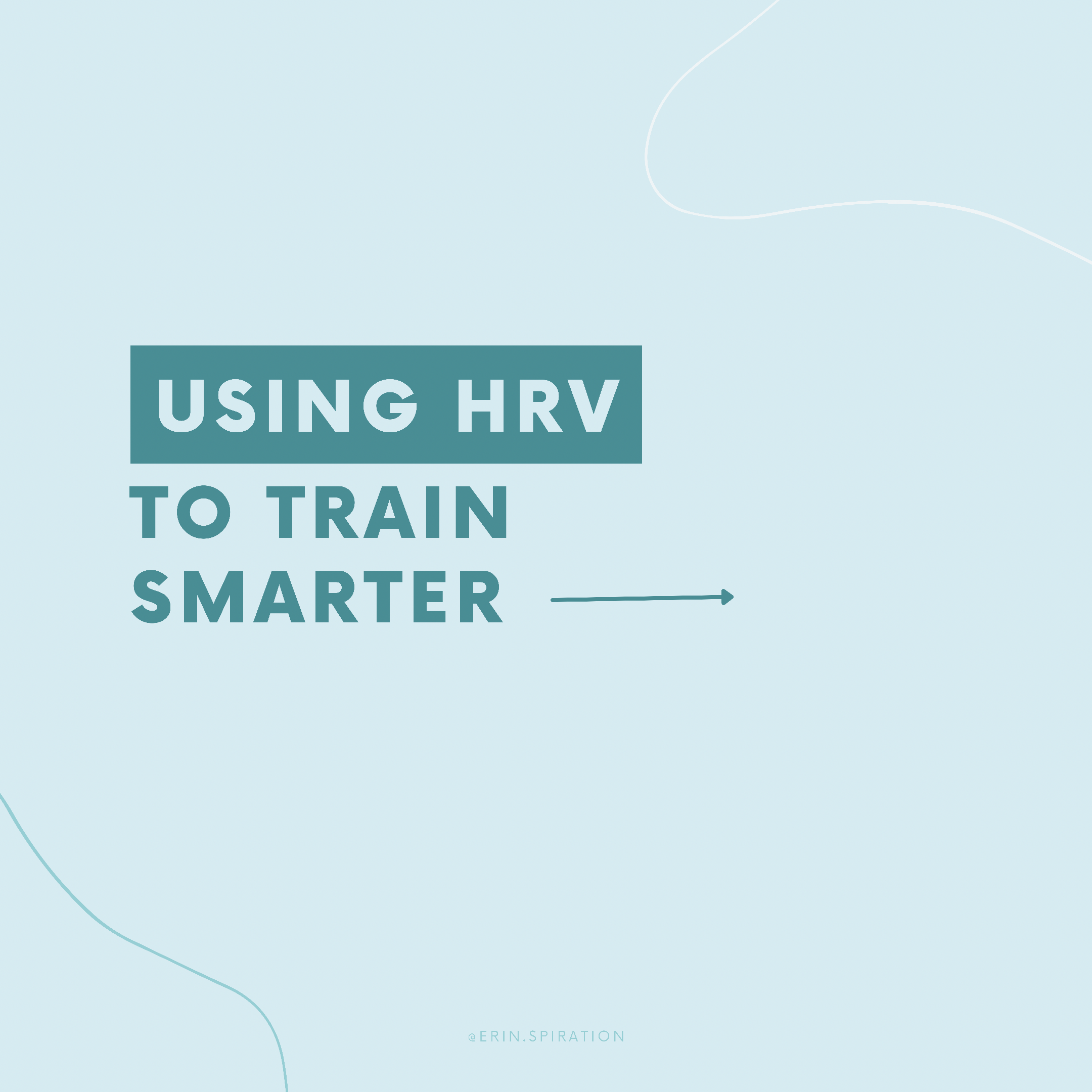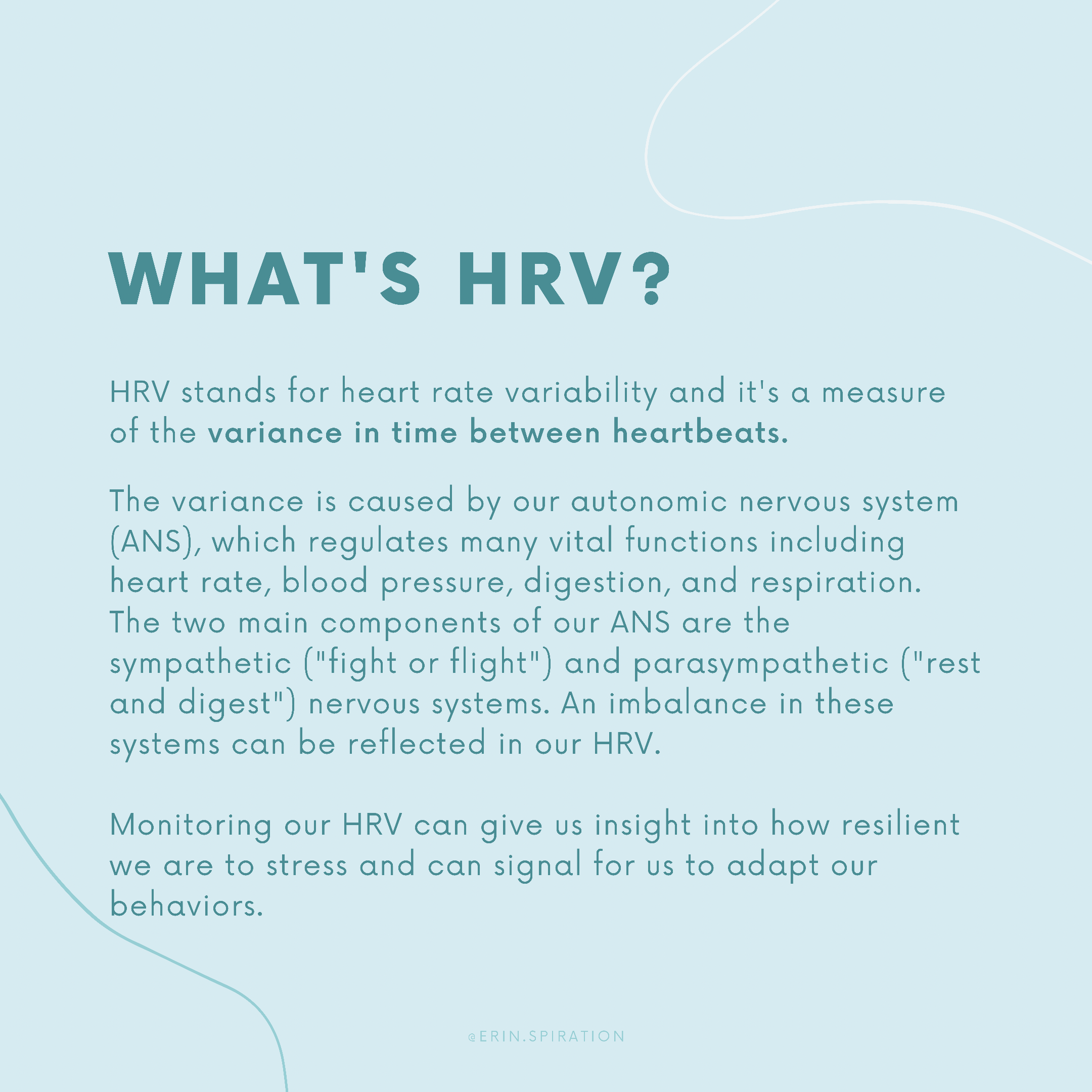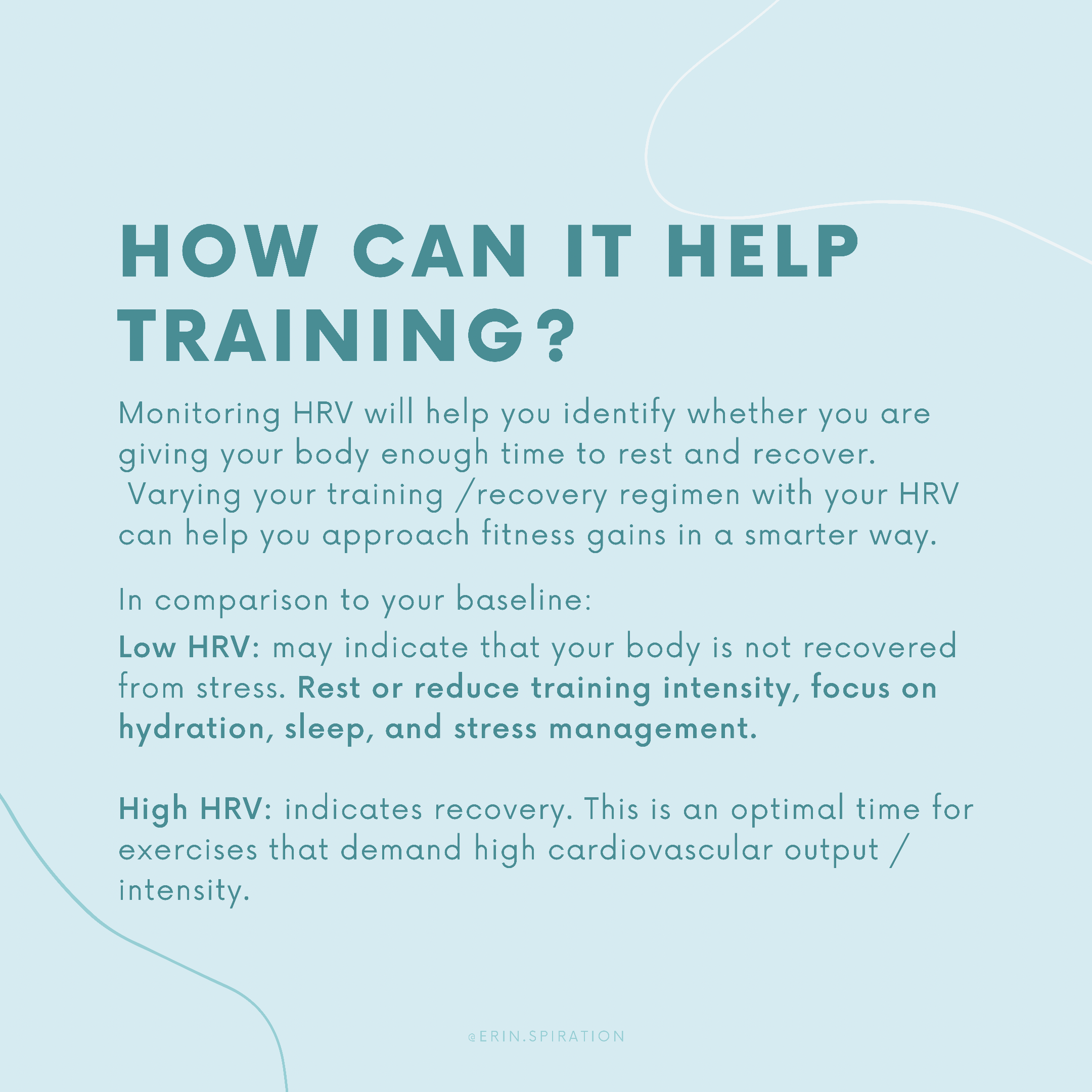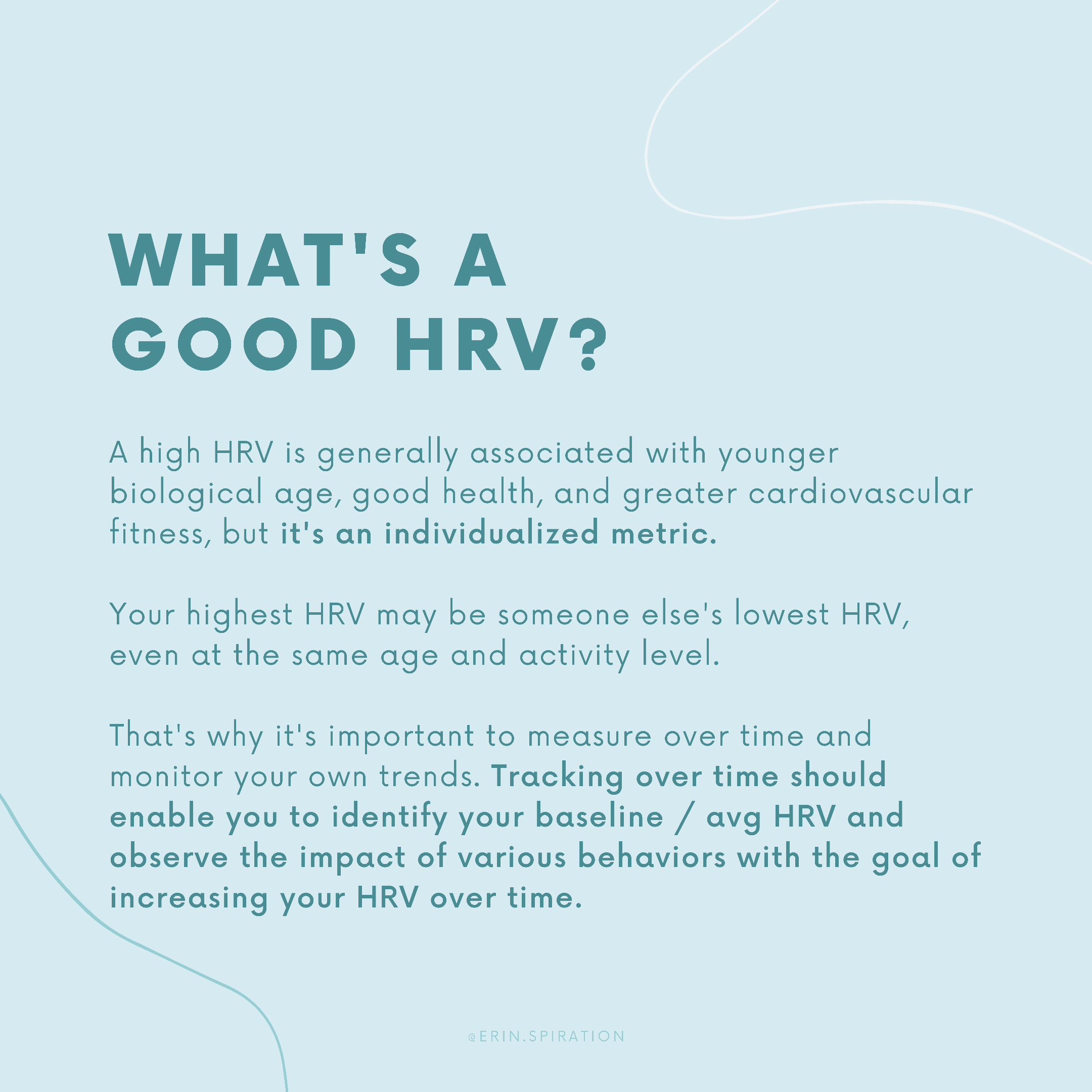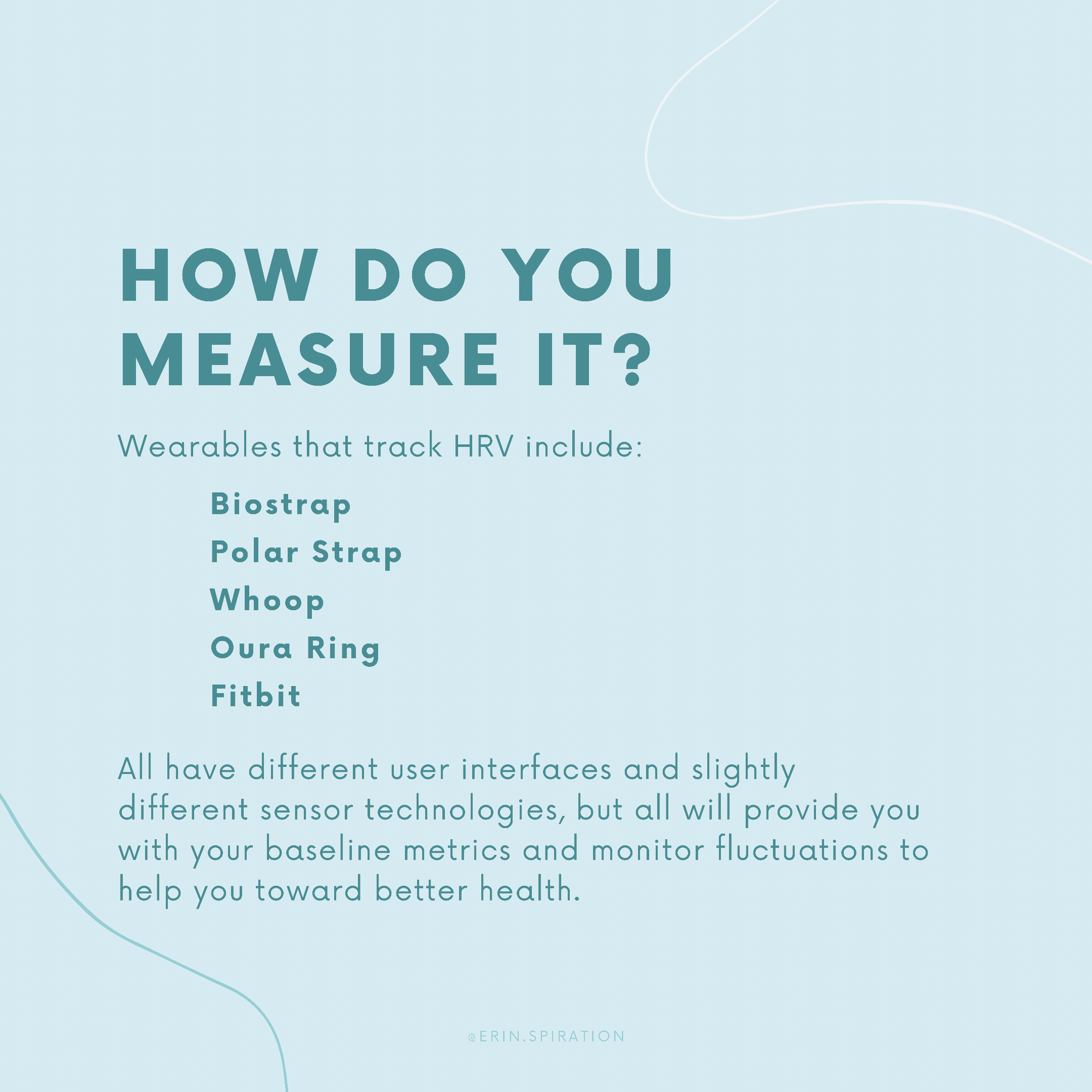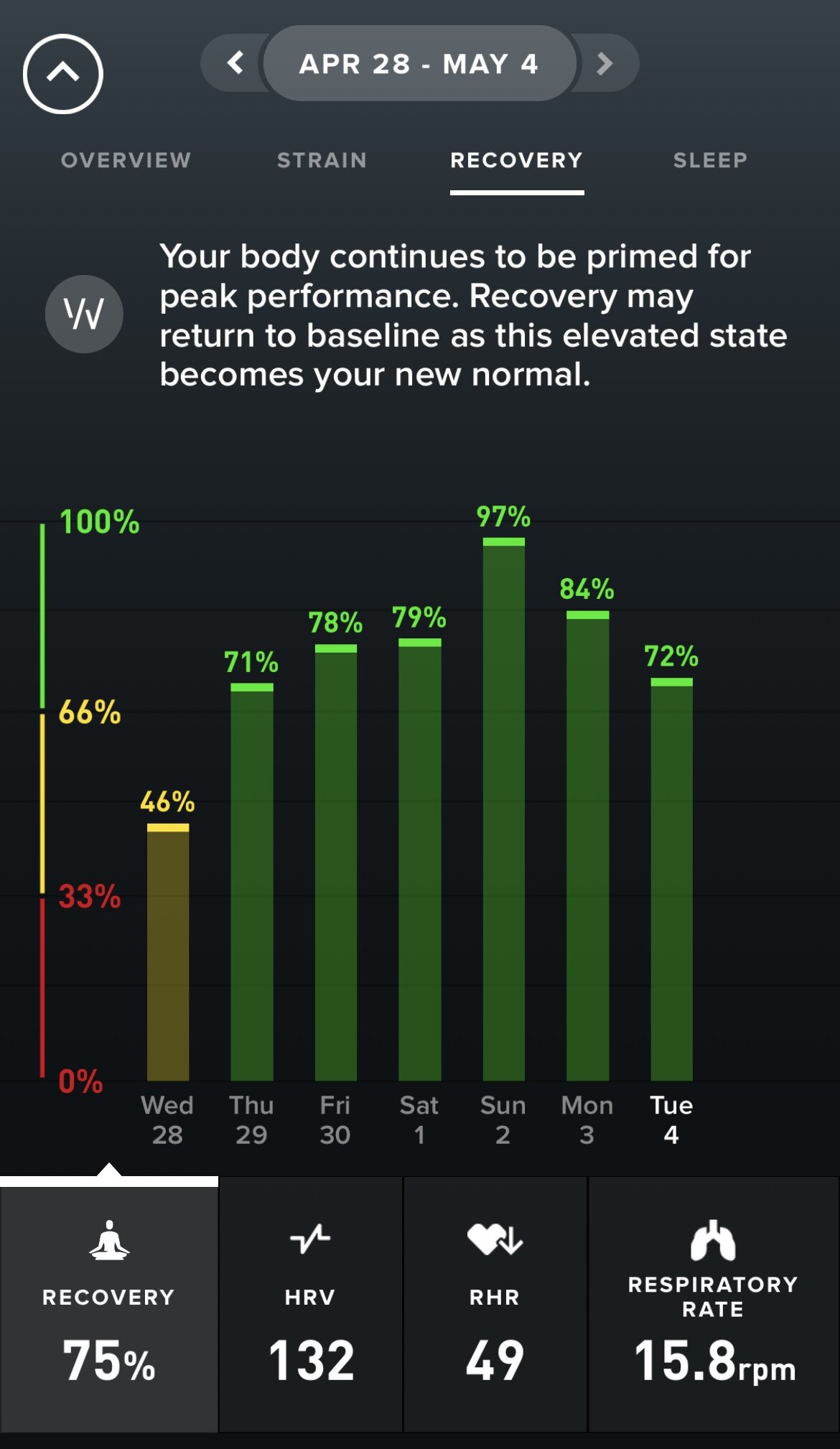Using HRV to Train Smarter
Fitness is more than reps❗️
When I first started my fitness / running journey years ago, I had the naive mentality that doing more would get me results faster and that doing less would stunt my progress. This is a common misconception, and tbh, I still don’t feel like there is enough emphasis in the fitness community around training “smart” and not hard.
What is HRV?
HRV stands for Heart rate variability and it’s a measure of the time in between heartbeats. The variance is caused by our autonomic nervous system (ANS), which regulates many vital functions including heart rate, blood pressure, digestion and respiration. The two main components of our ANS are the sympathetic (“fight or flight”) and parasympathetic (“rest and digest”) nervous systems. An imbalance in these systems can be reflected in our HRV. Monitoring our HRV can give us insight into how resilient we are to stress and can signal for us to adapt our behaviors.
What’s a “Good” HRV?
A high HRV is generally associated with younger biological age, good health, and greater cardiovascular fitness, but it’s an individualized metric. Your highest HRV may be someone else’s lowest HRV, even at the same age and activity level. That’s why it’s important to measure over time and monitor your own trends. Tracking over time should enable you to identify your baseline / average HRV and observe the impact of various behaviors with the goal of increasing your HRV over time.
How can it help training?
Monitoring your HRV will help you identify whether you are giving your body enough time to rest and recover. Varying your training and recovery regimen according to your HRV can help you approach fitness gains in a smarter way.
In comparison to your baseline:
Low HRV: may indicate that your body is not recovered from stress. Rest or reduce your training intensity, focus on hydration, quality sleep, and stress management.
High HRV: indicates recovery. This is an optimal time for exercises that demand high cardiovascular output / intensity.
How do you measure it?
👇🏻 Some HRV trackers I know of that you can look into if you’re interested in tracking for yourself:
All have different user interfaces, algorithms, and sensor technologies, but all will provide you with your baseline metrics. The fluctuation and trend over time are what matters, rather than the raw value. Monitoring the fluctuations over time and adapting lifestyle behaviors accordingly, is what can help you toward better health.
I’ve learned through the years that more volume and intensity is not better and that it’s often counterproductive and a stressor on the whole body and mind. Through years of research and experimentation, I’ve been learning how different styles of training impact my performance and how I need to vary intensity so that my body can recover and continue to perform without injury or constant stress. Tracking my HRV over the last 6 months has helped me visualize this impact. When HRV is low, I scale back, make sure I get the extra sleep, hydrate extra, and rest. I’ve realized firsthand that if you care about fitness, you have to equally care about recovery.
Curious about thoughts on this? Do you track your HRV? Have trouble with recovery?


